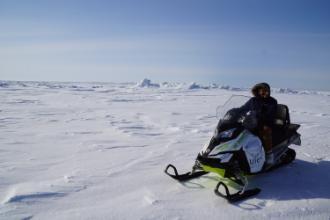Tom Nordheim
Tom graduated in 2009 with a BSc (1st class) in Space Science & Robotics
Current work: Research Scientist in the Planetary Chemistry & Astrobiology group at the NASA Jet Propulsion Laboratory in Pasadena, California.
What do you remember most about your time at Aber?
The atmosphere both on campus and in town is really great and I fondly remember time spent with my friends at the Arts Center, hanging out in town or walking along the seafront. The lecturers and staff were always very friendly and the level of the teaching was generally excellent. One aspect that I especially appreciated was that even as a first year undergraduate I got to interact directly with members of staff that were working on exciting international space missions to places like the Moon and Mars. Several of these people took me under their wing and helped nurture my interest in space research.
What are you doing now career-wise and how has your Aberystwyth Degree helped?
I am currently a research scientist in the Planetary Chemistry and Astrobiology group at the NASA Jet Propulsion Laboratory. A major focus of my work is to investigate the possibilities for life on icy worlds in the outer solar system using data returned from space missions. In addition to this I work on new types of instruments and robots that we use to explore extreme environments on Earth, with the aim to prepare for future space missions. The Space Science & Robotics degree uniquely prepared me for this work since I, unlike many people in my field, have a dual background in both engineering and science.
What advice would you have for a student doing your course now?
My advice would be to really try to take advantage of the course and the internationally renowned expertise of the lecturers and research staff. In my experience, there were plenty of opportunities for a motivated student to get involved in exciting projects both at the university and elsewhere. Get practical experience working on student projects, seek out internships, and look for student opportunities through the European Space Agency, the UK Space Agency and others. This sort of experience is very valuable when looking for a PhD or job later on.

